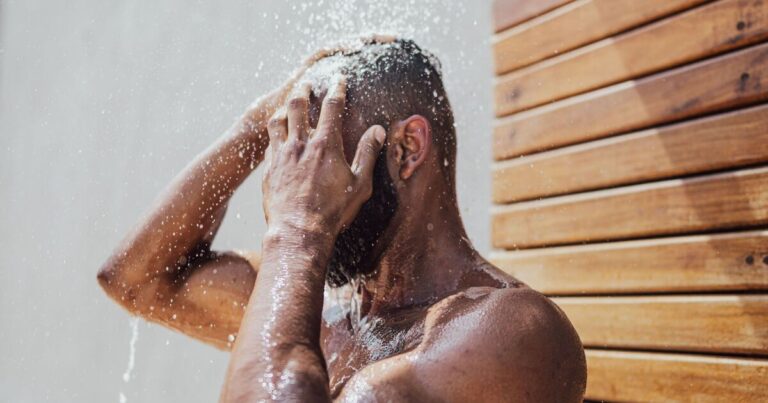Have you ever given your hair a caffeinated shampoo treatment and were disappointed with the results?
Medical experts are ready to debunk whether its effectiveness is just a “myth”. Caffeine shampoo, which has become a staple at supermarkets and pharmacies in recent years, is a product that uses caffeine extract to promote hair growth.
The first of its kind hit store shelves after a 2007 study found that caffeine stimulated hair follicle regrowth in a laboratory dish. Researchers developed a shampoo in hopes of replicating this effect on the human scalp. Lloyds Pharmacy previously scrutinized all negative reviews of four brands of caffeine shampoo on Amazon and found that 41% of users felt they were not effective in promoting hair growth.
In this wake, Pharmacist Dr. Bhavini Shah sheds light on how caffeine shampoos work, potential side effects, and viable alternatives. Lloyds Pharmacy says it remains “unknown” whether the shampoo is actually effective. “There is not enough evidence to prove that it has any effect on scalp hair.”
Lloyd’s Pharmacy further states, “There is much debate as to whether caffeine shampoos can actually match the success of this initial study in preventing hair loss. Generally speaking, caffeine shampoos have been used medically as treatments for hair loss. Instead, most doctors in the UK recommend treatments such as finasteride and minoxidil, which have been proven in clinical trials.
Meanwhile, hair transplant and restoration surgeon Dr. Ashi Peretz is a regular on the TikTok account Trichogenics (@tricogenics), where he shares his opinions on the effectiveness of certain shampoos in combating hair loss. In one of his videos on the subject, he said: “There are many shampoos that promise to bring your hair back.”
He continued, “There are also some shampoos such as caffeinated shampoos and ketoconazole that can lower DHT (dihydrotestosterone) levels in the scalp. However, this will not bring your hair back to the level you expect. You can’t put the parts back together, but you might be able to improve it a little by making it a little more dense.”
In the UK, there are only two clinically validated hair loss treatments. Finasteride, which comes in pill form, and Minoxidil, which is available as a lotion or foam. General practitioner Dr Shah reveals why finasteride is a great option for people suffering from hair loss, saying: ”
Dr. Shah further sheds light on the mechanism behind finasteride, adding: “Finasteride works by blocking the action of an enzyme called 5-alpha-reductase, which converts the hormone testosterone into another hormone called dihydrotestosterone. High levels of DHT By reducing the amount of DHT in the scalp, finasteride can also prevent hair loss and promote new hair growth. ”
However, another TikTok user, Helena (@helenajekul), praised the effects of caffeine shampoo on her hair, revealing in a video that she witnessed a “significant improvement” after 18 months of continuous use. I made it. “Wow, there’s so much new hair coming out,” she exclaimed, noting, “Even my ponytail feels so thick.”
And the second person to swear by it, TikToker Kathleen Ayald (@kathleenayald), echoed her positive experience, writing, “I’ve been using this for 2 months already and it really helps. I shampoo my hair with Dr. Wolf Alpecin Caffeine Shampoo, massage it in and leave it in for 2 minutes.
However, experts at Lloyds Pharmacy have issued a warning, advising users to be aware of the potential side effects associated with caffeine shampoos. “If you look through negative reviews about caffeine shampoos, you’ll also see mentions of unpleasant side effects such as scalp redness and burning sensations. It’s important not to believe every word in negative reviews. But here’s what you should keep in mind: “Your hair and scalp can react badly to caffeine shampoos,” they advise.
“Check the label of your shampoo of choice for side effects before use, and contact your doctor if you notice any signs of a problem.”

